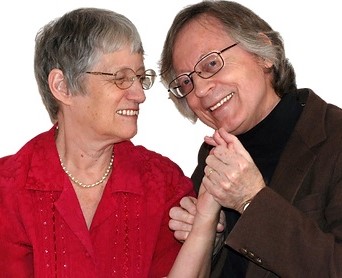Where I’m Supposed to Be: John Charles Peterson’s story
As told to Jeffrey Owen Pearson
Here I am, rambling away, and you, letting me tell stories. That could be the biggest mistake ever. Actually, I’ve written a book already, The True Adventures of Captain Wa Wah, where I relate my early days as a keyboard player in a band from Iowa that played gigs from Chicago to Denver, then my transition to becoming a Family Practice doctor in Muncie, Indiana.
I have no intention of retiring soon because I like what I do. What keeps me going? I’ve never known, not since I started 72 years ago. First, there was the musician. Then, the doctor. What I do in medicine and music, and everything else I do, is a part of my dharma . . . doing that which I should be doing to be happy and fulfilled. I’ve been fortunate enough through the years to do things that are in keeping with my dharma.
I’ve always been the one that was a little different. Long hair to my waist in those early years, antiwar, anti-Viet Nam, and anti-corporate. I said to my med school, “You need someone like me here,” and they said, maybe so. I’m not part of the local health conglomerate here, and I see fewer patients than other doctors. That way I get to spend more time with my patients, who are people and not numbers. The only day I didn’t have a full caseload was my first day in practice, and I attract patients who are well informed. I still play music around town, and between clients I compose music in my head. I can’t turn it off. Before I die, I have 40 or 50 songs I want to record. This year I will release an album with five original songs and five songs written by two iconic Hoosier composers, Hoagie Carmichael and Cole Porter.
For a number of years, I owned Doc’s Music Hall in downtown Muncie. When we closed the club, the documentarian Robert Mugge asked, “Are you still a musician first?” I’ll tell you what I told him. I think they’re the same dharma, medicine and music. There’s the same synaptic processing, synergistic patterning, and creative mathematics. Parts of the same thing.
There was a young keyboard player I taught to play. Despite his failing year after year in math, he was a masterful mathematician on the keyboard. I taught him how mathematical patterns correlate with chords. Tricks of chord progressions that give emotional experience. These were all things I figured out mathematically, combinations that trigger different emotions. Suspended chords, minors and majors. Where you play on the keyboard always makes a difference. For instance, the music of Brahms had a prominent low end. The tones themselves vibrate, much like celestial bodies.
After nearly fifty years of practice, I have all sorts of medical stories to tell. That’s my next book. For instance, there’s the case of a VA patient with a loss of all feeling from the waist down. I was a third-year med student in neurology rotation, and I was the one chosen to pre[1]sent the case to one of the world’s authorities in the field. Intrigued, he took us all and went over to the VA to see the patient himself. After thoroughly examining the man I said, “I have no idea what’s wrong.” The lesson? Admit what we don’t know, what we can’t explain. I found that by studying ancient Ayurvedic writings, I could learn time-tested wisdom. The understanding of scholars from thousands of years ago now coincides with discoveries of quantum physicists who have explained the unified field Einstein was searching for. We are basically all different frequencies, and medicine can find healing at the fundamental source of our existence.
I had a patient with ITP, a disease where the body forms antibodies against its own blood cells called platelets. Basically, the body is at war with itself. The regimen we tried, based on Vedic knowledge, was successful, and she later chaired a symposium on the disease and asked me to represent an alternative medical viewpoint. I asked a Vedic scholar and physician for advice. After much discussion, he noted that autoimmune issues are all indicators of unexpressed anger. Remember, he told me, the most important thing is healing. Practice unconditional forgiveness.
I feel really fortunate. My wife, Vicki, is wonderful. The kids and grandkids are great, and this Christmas was a joy spending time with them. It was exhausting, but fun. It was filled with some really good and insightful conversations too. I have great friends, great patients.
Lathay Pegues plays drums with me, and at some point in every gig, about half way through, something happens that’s unexpected and magical. I look at Lathay and say, “You know something?” and he says, “I know, Doc. It doesn’t get better than this.”
And that’s the running joke. Whether there’s two people or a hundred people in the audience. It doesn’t matter. “You know something, Lathay? It doesn’t get better than this.”
This story originally appeared in Life After 60: The Golden Years, a publication of The Facing Project that was organized by Molly Flodder with support from LifeStream Services in Muncie, Indiana.


